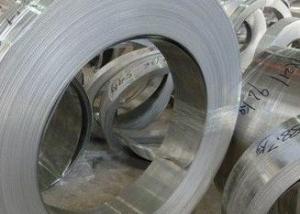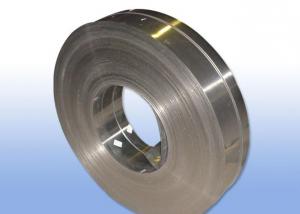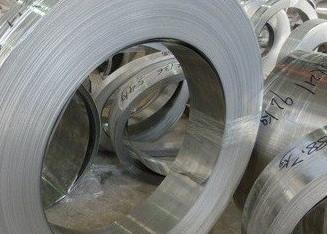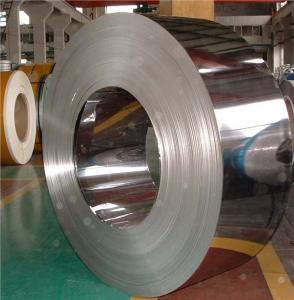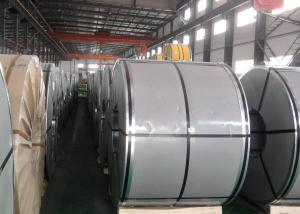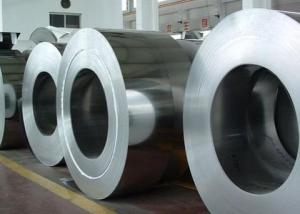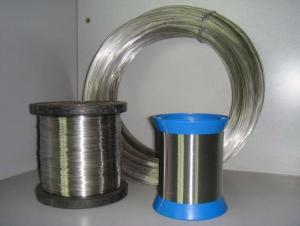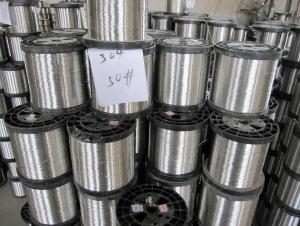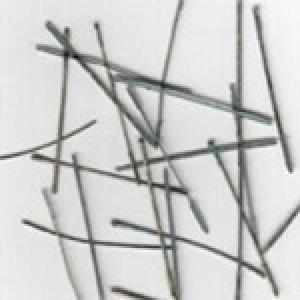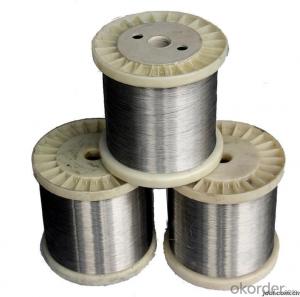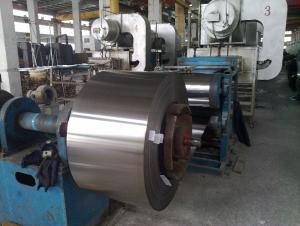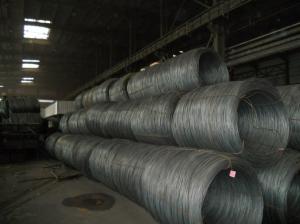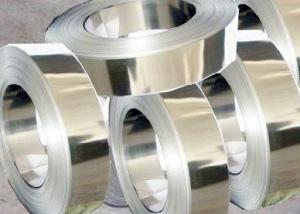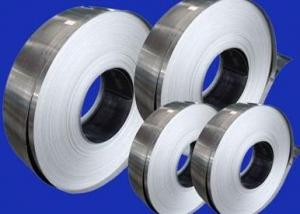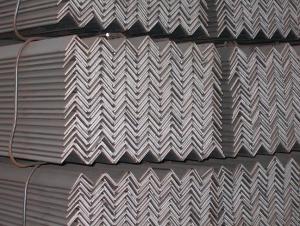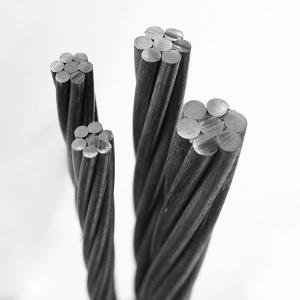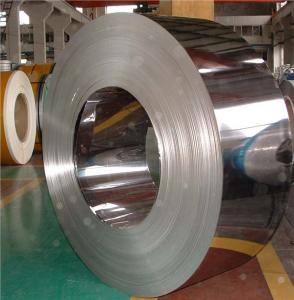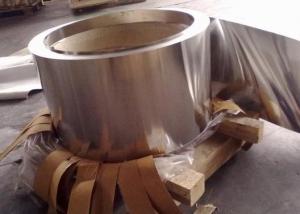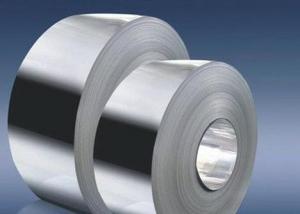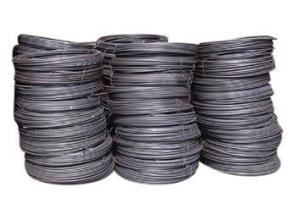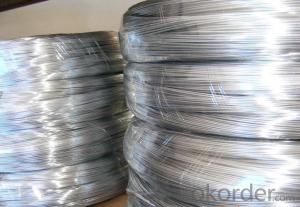Stainless Steel Strips 304
- Loading Port:
- China Main Port
- Payment Terms:
- TT or LC
- Min Order Qty:
- 1 Ton m.t.
- Supply Capability:
- 1000Tons Per Month m.t./month
OKorder Service Pledge
Quality Product, Order Online Tracking, Timely Delivery
OKorder Financial Service
Credit Rating, Credit Services, Credit Purchasing
You Might Also Like
- Q:Can stainless steel wire be supplied in cut lengths?
- Yes, stainless steel wire can be supplied in cut lengths. Stainless steel wire is often available in spools or coils, but it can also be cut to specific lengths according to the customer's requirements. This allows for more precise and convenient usage in various applications such as welding, construction, jewelry making, and electrical wiring. The cut lengths of stainless steel wire ensure that customers have the desired amount of wire without any excess, making it more cost-effective and efficient for their specific needs.
- Q:Can stainless steel wire be used for springs in the manufacturing industry?
- Yes, stainless steel wire can be used for springs in the manufacturing industry. Stainless steel is highly resistant to corrosion and has excellent mechanical properties, making it a suitable material for springs that require durability and strength. Additionally, stainless steel springs can withstand high temperatures and maintain their shape and performance over time, making them a reliable choice for various industrial applications.
- Q:What are the different types of stainless steel wire for different levels of strength?
- Various types of stainless steel wire are available with different levels of strength to suit a range of applications. The most commonly used types for different strength requirements are as follows: 1. Austenitic Stainless Steel Wire: This type is highly popular due to its exceptional corrosion resistance and high tensile strength. It is extensively utilized in environments where both strength and corrosion resistance are crucial, such as marine settings or chemical processing industries. 2. Martensitic Stainless Steel Wire: Martensitic stainless steel wire offers superior strength and hardness compared to austenitic stainless steel. It finds applications in industries that demand high mechanical strength, such as the production of springs, surgical instruments, or cutlery. 3. Duplex Stainless Steel Wire: Duplex stainless steel wire combines properties from both austenitic and ferritic stainless steel. It offers increased strength while maintaining good corrosion resistance. Common uses include the oil and gas industry, chemical processing, or desalination plants. 4. Ferritic Stainless Steel Wire: Ferritic stainless steel wire possesses high tensile strength, but its corrosion resistance is lower than that of austenitic stainless steel. It is commonly utilized in applications requiring high strength without exposure to corrosive environments, such as automotive exhaust systems or decorative purposes. 5. Precipitation Hardening Stainless Steel Wire: Heat-treated to achieve high strength levels, precipitation hardening stainless steel wire is often employed in aerospace, nuclear, or other high-performance industries where both strength and corrosion resistance are vital. When selecting the appropriate stainless steel wire for a particular application, it is essential to consider the specific requirements. Factors such as strength, corrosion resistance, temperature resistance, and cost should all be taken into account to ensure optimal performance. Seeking advice from a materials engineer or a stainless steel wire manufacturer can provide further guidance in choosing the most suitable type for individual needs.
- Q:How does stainless steel wire resist staining?
- Stainless steel wire resists staining due to its unique chemical composition and surface properties. The main element that provides this resistance is chromium, which forms a thin, protective oxide layer on the surface of the wire. This layer, known as the passive layer, acts as a barrier, preventing oxygen and moisture from reaching the underlying metal. The passive layer is self-healing, meaning that if it is damaged or scratched, it can quickly reform and restore its protective properties. This ability to self-repair contributes to the overall stain resistance of stainless steel wire. Additionally, stainless steel wire often contains other alloying elements such as nickel and molybdenum, which further enhance its resistance to staining. These elements increase the corrosion resistance of the wire and help it withstand exposure to various chemicals and environments. The smooth and non-porous surface of stainless steel wire also plays a role in its stain resistance. Unlike other materials, stainless steel wire does not have microscopic cracks or pores that can trap and hold staining substances. This makes it easier to clean and maintain its appearance over time. Overall, the combination of chromium, other alloying elements, self-repairing properties, and smooth surface make stainless steel wire highly resistant to staining, making it a preferred choice for various applications where aesthetics and durability are important.
- Q:Can stainless steel wire be used for making jewelry clasps?
- Certainly! Stainless steel wire is a great option when it comes to crafting jewelry clasps. The reason for this lies in the material's remarkable durability, strength, and resistance to corrosion. Stainless steel is truly versatile, as it can be easily shaped and resized to fit any desired design. This makes it a superb choice for crafting various styles of clasps, such as lobster clasps, spring ring clasps, and toggle clasps. Another benefit is that stainless steel wire comes in a variety of finishes, such as polished, brushed, or plated, which opens up a world of possibilities for creating unique designs. Ultimately, using stainless steel wire guarantees the longevity and high quality of the final piece.
- Q:Is stainless steel wire corrosion-resistant?
- Yes, stainless steel wire is corrosion-resistant.
- Q:What are the main characteristics of stainless steel wire?
- The main characteristics of stainless steel wire include its high resistance to corrosion, strength, durability, and versatility. It is known for its ability to withstand extreme temperatures and harsh environments, making it suitable for a wide range of applications such as electrical wiring, construction, and manufacturing industries. Additionally, stainless steel wire is non-reactive to most chemicals, has a clean and polished appearance, and can be easily formed and manipulated.
- Q:What are the benefits of using stainless steel wire?
- Using stainless steel wire for various applications offers several advantages. Firstly, it is renowned for its exceptional strength and durability, boasting a high tensile strength that enables it to withstand heavy loads and resist breakage. This makes it an ideal choice for construction, automotive, and industrial projects, where strong and reliable materials are required. Secondly, stainless steel wire exhibits a high level of resistance to corrosion and rust. This is attributed to the presence of chromium in the alloy, which forms a protective layer on the surface, effectively preventing rusting even when exposed to moisture or harsh environments. Consequently, stainless steel wire is highly suitable for outdoor applications or areas with high humidity or chemical exposure, such as marine environments or chemical processing plants. Additionally, stainless steel wire possesses excellent heat resistance properties, allowing it to endure high temperatures without deforming or compromising its strength. This makes it well-suited for applications involving high heat, such as the manufacturing of heat exchangers, furnaces, or electrical heating elements. Another advantage of utilizing stainless steel wire is its versatility. It can be easily formed, bent, or shaped without sacrificing its properties, offering numerous customization options. This flexibility renders stainless steel wire suitable for a wide array of applications, including mesh screens, wire ropes, springs, fasteners, and welding electrodes. Lastly, stainless steel wire is renowned for its aesthetic appeal, boasting a smooth and polished surface that imparts a modern and sleek look. This makes it a popular choice in architectural and interior design applications, such as balustrades, staircases, or decorative wire mesh. In summary, the utilization of stainless steel wire presents numerous benefits, including exceptional strength, corrosion resistance, heat resistance, versatility, and aesthetic appeal. These qualities make it a reliable and durable option for a diverse range of applications in various industries.
- Q:Can stainless steel wire be used for architectural cable systems?
- Yes, stainless steel wire can be used for architectural cable systems. It is a popular choice due to its strength, durability, and corrosion resistance, making it suitable for various architectural applications such as cable railings, suspended ceilings, and tension structures.
- Q:Is stainless steel wire resistant to alkaline environments?
- Indeed, stainless steel wire exhibits resistance to alkaline environments. Renowned for its exceptional corrosion resistance properties, stainless steel withstands exposure to alkaline substances, including bases and alkalis, without enduring noteworthy harm or deterioration. Consequently, stainless steel wire proves to be a fitting option for scenarios in which it will encounter alkaline environments, such as chemical processing plants, wastewater treatment facilities, and marine settings. The substantial quantities of chromium within stainless steel generate a protective oxide layer on its surface, serving as a barricade against corrosion. This fortifies the wire's endurance and lifespan when faced with alkaline conditions.
We specialize in the production of stainless steel seamless and welded pipe. We have more than 10 years of experience in the market, and the company has advanced technology and first-class equipment.The company obtained the ISO9001: 2000 quality system certification, as well as PED and GOST9941 -. 81 certification. Our products are exported to Germany, Russia, Mexico, the United States, Brazil, Italy, South Korea, India and other countries.
1. Manufacturer Overview |
|
|---|---|
| Location | Zhejiang,China |
| Year Established | 2000 |
| Annual Output Value | Above US$8.3 Million |
| Main Markets | Europe, America |
| Company Certifications | ISO9001:2000 |
2. Manufacturer Certificates |
|
|---|---|
| a) Certification Name | |
| Range | |
| Reference | |
| Validity Period | |
3. Manufacturer Capability |
|
|---|---|
| a)Trade Capacity | |
| Nearest Port | Shanghai |
| Export Percentage | 30% |
| No.of Employees in Trade Department | 30 People |
| Language Spoken: | English;Chinese |
| b)Factory Information | |
| Factory Size: | Above 80,000 square meters |
| No. of Production Lines | Above 7 |
| Contract Manufacturing | OEM Service Offered;Design Service Offered |
| Product Price Range | Average |
Send your message to us
Stainless Steel Strips 304
- Loading Port:
- China Main Port
- Payment Terms:
- TT or LC
- Min Order Qty:
- 1 Ton m.t.
- Supply Capability:
- 1000Tons Per Month m.t./month
OKorder Service Pledge
Quality Product, Order Online Tracking, Timely Delivery
OKorder Financial Service
Credit Rating, Credit Services, Credit Purchasing
Similar products
New products
Hot products
Hot Searches
Related keywords
